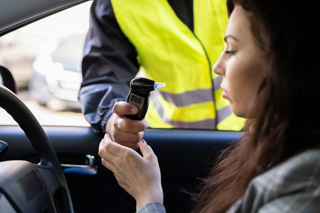A leading academic has questioned the role of the police in work-related road safety after a report recommended developing a mandatory national standard.
TRL conducted the gap analysis of work-related road risk on behalf of the Metropolitan Police and the Association of Chief Police Officers (ACPO).
However, while Dr Will Murray congratulated TRL on its report, he told Fleet News it had failed to address a number of important issues.
“There appear to be a number of gaps, which are a missed opportunity for work-related road safety” he said.
“Several of these appear to be in areas that are the direct responsibility of the police, which in itself is interesting given that they appear to have sponsored the research.”
Murray says it remains a “national scandal” that even though the police have been obliged to capture ‘purpose of journey’ information on their Stats19 collision report since 2005, seven years later 69% of the events report are still coded as purpose of journey ‘other or unknown’.
“Whatever the reason for the missing 69% of data,” he said, “this situation is unacceptable.”
Murray believes the police should be “systematically determining” whether the journey was work related, referring all such cases to the Health and Safety Executive (HSE) and demanding their active participation, engagement and leadership.
One of the key findings of the research, which Murray agreed with, was that the management of work-related road risk is widely perceived to be lagging behind the management of health and safety risk in the workplace.
Dr Shaun Helman, who led the research, said: “The general perception is that despite a great deal of effort by some stakeholders and businesses over the past decade, in the majority of organisations work-related road risk is simply not being managed in the way it should be.”
The research also highlighted the need for any compulsory national standard to be simple and evidence-based.
‘Baseline’ features suggested for what the standard should require include a simple-to-follow risk management system based on the ‘plan, do, check, act’ model, licence checks for drivers, and the collection of data, for example incidents and near misses, to monitor performance.
It recommends either a standalone national standard or a practical guidance document, such as an Approved Code of Practice, published by the HSE. This could be supported by the new safety standard, ISO 39001:2012.
The report also suggests that a national standard should encourage businesses to focus on reducing the extent to which employees are asked to drive when tired, distracted or under time pressure.
Finally, it suggests the police might find ways to ensure businesses find out about traffic offences committed by employees, as such data can be used to help understand levels of risk.
“A clear understanding of the risk exposures and costs is vital,” said Murray.
He is calling for all key agencies, researchers and professional groups to get together and discuss the TRL findings, the identified gaps and plan for the future.
He concluded: “I believe there is a much greater need for collaboration between all the lead agencies.”























Eddie Eusebi - Drivercheck - 16/11/2012 11:33
This is very disappointing and this is not acceptable. Once again the police are too lazy and are also complacent themselves even to be bothered. Once again the use of driver distraction is used and if I was abetting man, it will be mainly this with mobile phone use.Great article by Dr Will Murray and Gareth Roberts.